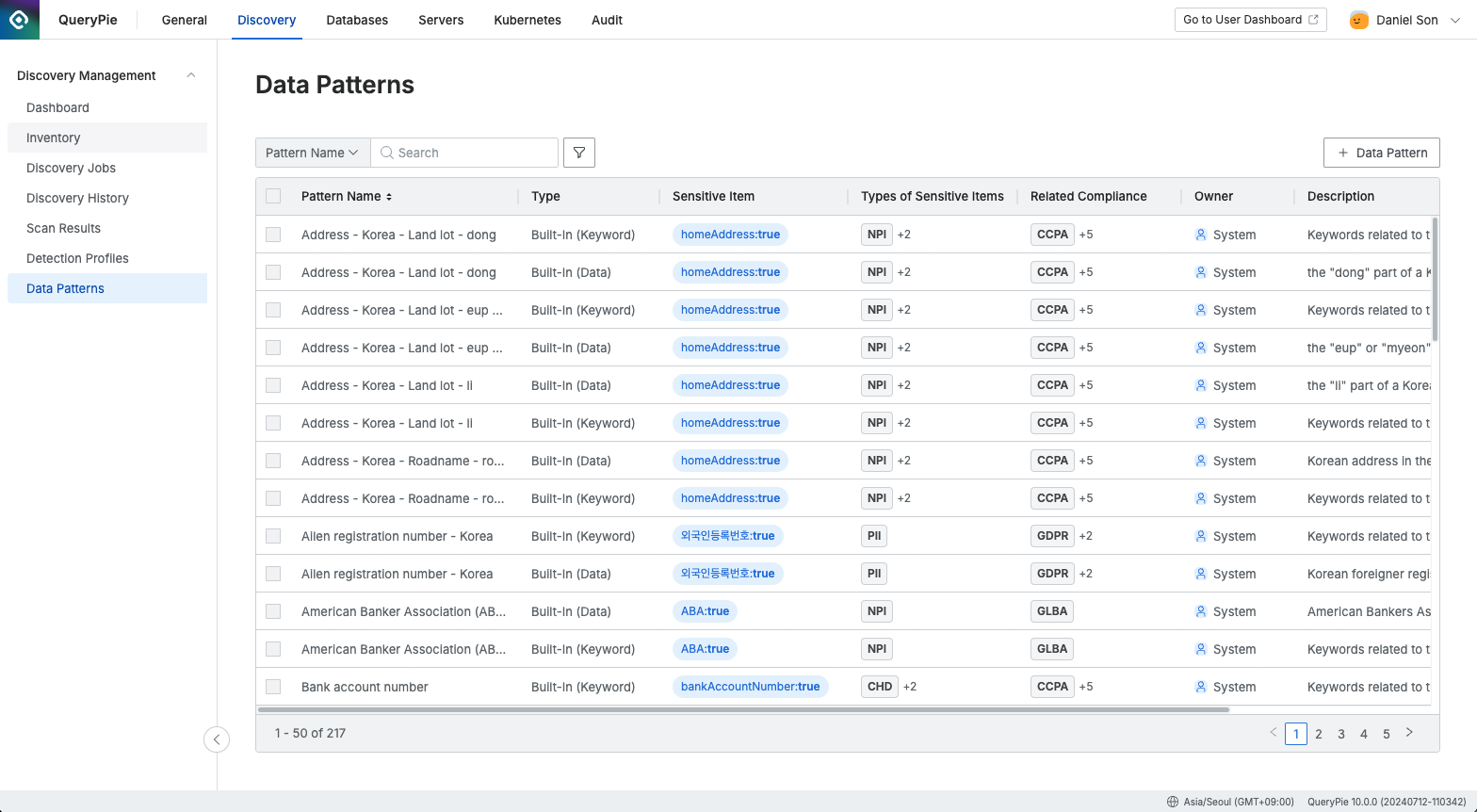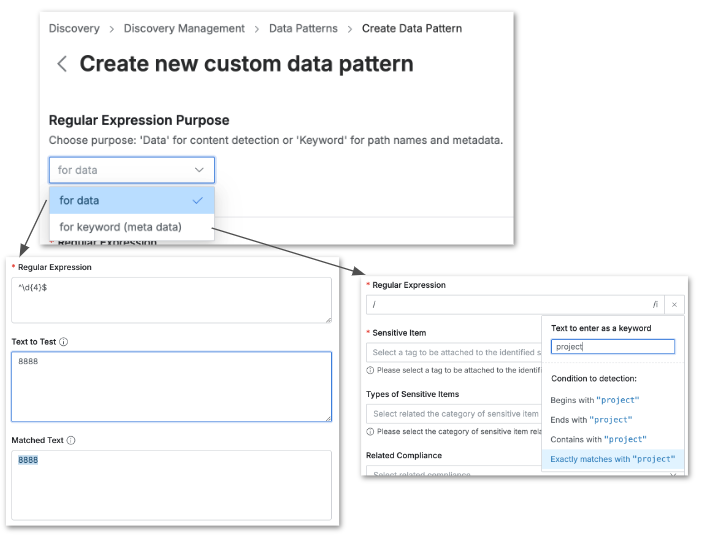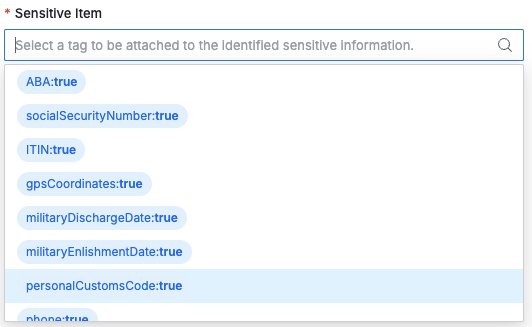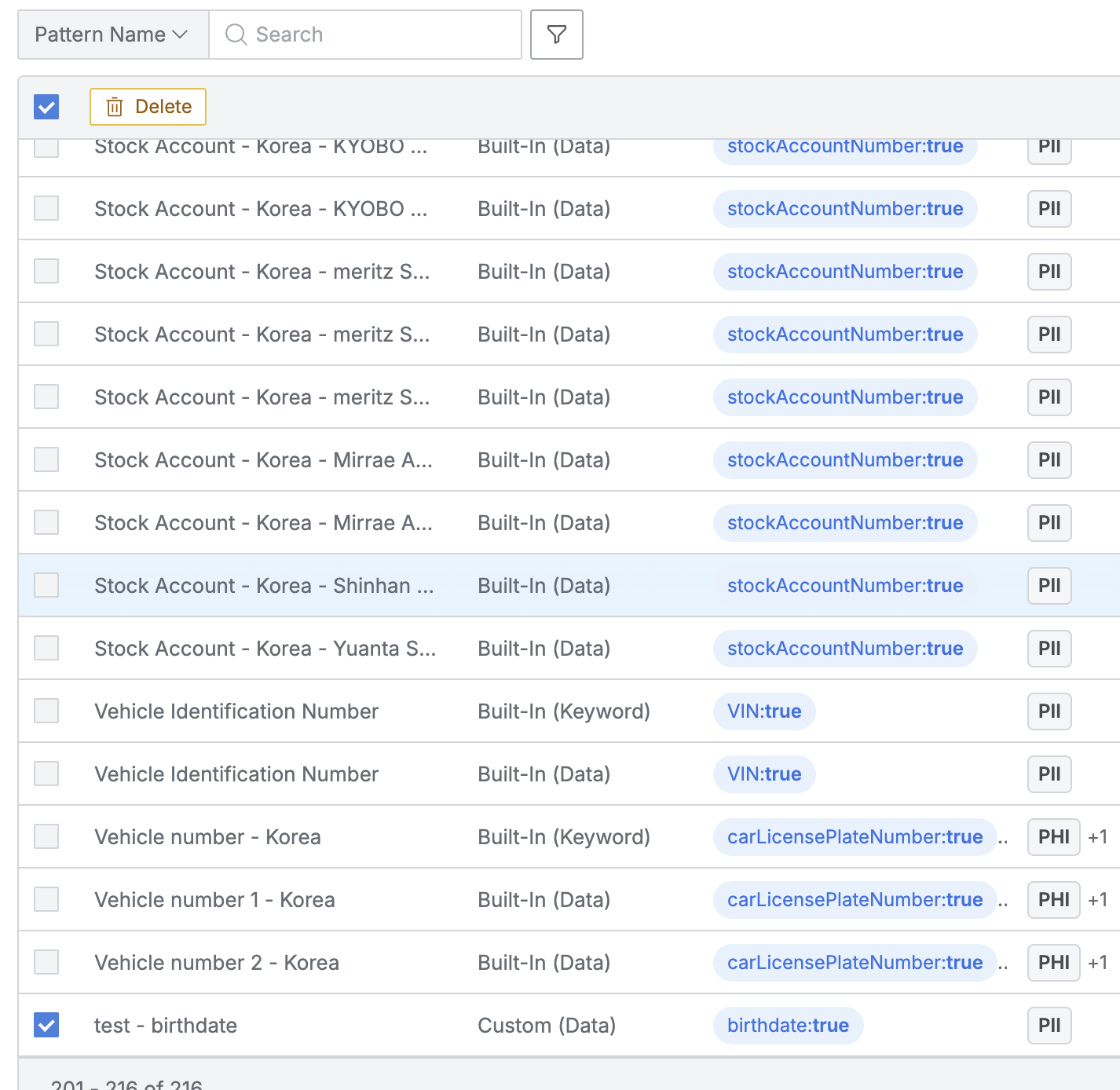Data Patterns
Overview

Administrator > Discovery > Discovery Management > Data Patterns
The Data Patterns section provides a list of patterns used for scanning. Predefined patterns are available for convenience, and custom patterns can be created by entering desired regular expressions.
Built-in (predefined) patterns cannot be viewed, modified, or deleted.
There are two types of patterns based on their purpose:
for data: Used to scan data within specific columns. This type of pattern is necessary for precise identification of sensitive information.
for keyword: Used to scan metadata, such as path names. This is useful for quickly searching by column names when the administrator already knows where sensitive information might exist, reducing scan time and system load.
Creating a Custom Data Pattern
To add a custom pattern, click the
+ Data Patternbutton at the top of the pattern list.Regular Expression Purpose : Specify whether the pattern is for data or for keyword.
The input format for regular expressions varies between the two types.
Registering Regular Expressions

For data, since this involves scanning actual data, a regular expression capable of detecting the data is required.
For keyword, this scans metadata such as path names, so you can either input a regular expression directly or specify detection conditions after entering textRegular Expression: Enter the regular expression required for detection. For keyword patterns, you can either directly enter a regular expression or input text and specify conditions for detection.
Text to Test: Input a string to verify that the regular expression works correctly.
Matched Text: If the input string is detected by the regular expression, it will be highlighted.
Sensitive Item : Select the type of sensitive information the regular expression is designed to detect. This is a required field, and one sensitive item must be selected to match the regular expression.

Types of Sensitive Items: Specify the type of sensitive information, if applicable. This is optional.
Related Compliance: Specify any related compliance standards, if applicable. This is also optional.
Data Pattern Name: Provide a name for the pattern to facilitate easy identification.
Description: Enter a description of the pattern. It is recommended to include detailed information to make it easier to identify when adding it to a Detection Profile.
Editing and Deleting Custom Patterns
Editing Custom Patterns: Click on a specific row of a custom pattern in the data pattern list to view and modify its settings. Built-in patterns cannot be viewed or modified.
Deleting Custom Patterns: Select the checkbox next to a custom pattern and click the
Deletebutton to remove it. Built-in patterns cannot be deleted.
If a custom pattern is linked to a Detection Profile, it cannot be deleted. To delete it, first remove the custom pattern from any associated profiles.
%201.png)